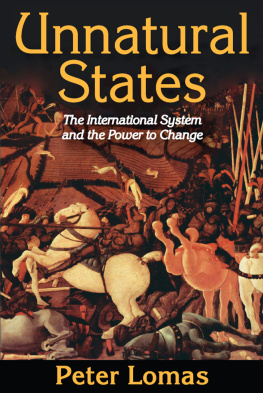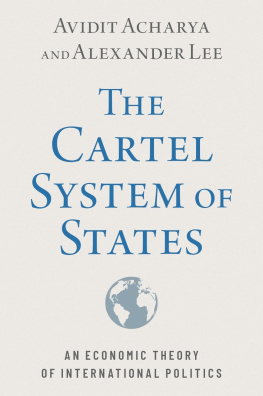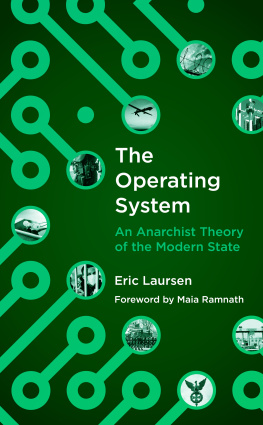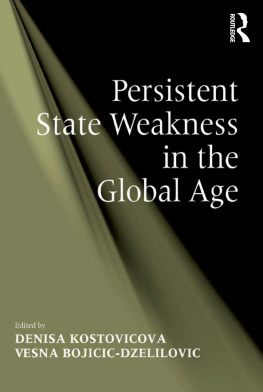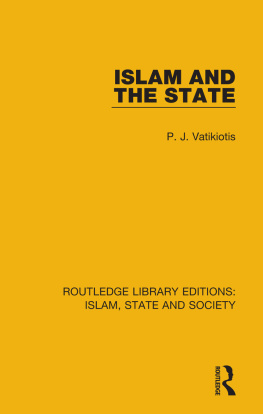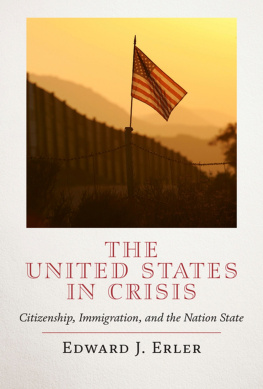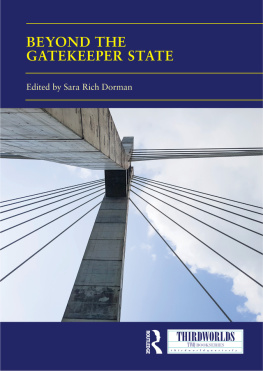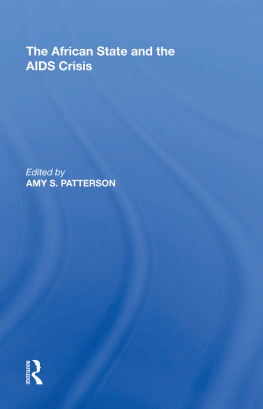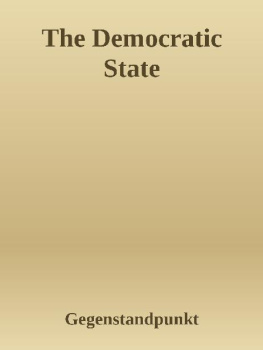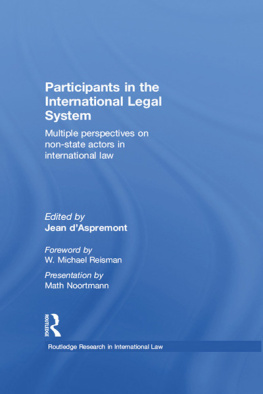First published 2014 by Transaction Publishers
Published 2017 by Routledge
2 Park Square, Milton Park, Abingdon, Oxon OX14 4RN
711 Third Avenue, New York, NY 10017, USA
Routledge is an imprint of the Taylor & Francis Group, an informa business
Copyright 2014 by Taylor & Francis.
All rights reserved. No part of this book may be reprinted or reproduced or utilised in any form or by any electronic, mechanical, or other means, now known or hereafter invented, including photocopying and recording, or in any information storage or retrieval system, without permission in writing from the publishers.
Notice:
Product or corporate names may be trademarks or registered trademarks, and are used only for identification and explanation without intent to infringe.
Library of Congress Catalog Number: 2013039628
Library of Congress Cataloging-in-Publication Data
Lomas, Peter, 1948-
Unnatural states : the international system and the power to change / Peter Lomas.
pages cm
ISBN 978-1-4128-5399-6 (cloth : alk. paper)
1. International organization--Philosophy. 2. International relations--Philosophy. 3. State, The--Philosophy. 4. Human rights--International cooperation. 5. Weapons of mass destruction--International cooperation. 6. Developed countries--Foreign economic relations--Developing countries. 7. Developing countries--Foreign economic relations--Developed countries 8. Environmental protection--International cooperation. I. Title.
JZ1308.L66 2014
320.1--dc23
2013039628
ISBN 13: 978-1-4128-5399-6 (hbk)
Toward the millennium Chris Brown wrote: International Relations today is a theoretically sophisticated and challenging social science, the location of important debates on, for example, agency-structure, gender, identity, and the further reaches of post-modern and post-structural thought. The point needed making, he said, to counter the impression that international theory was merely higher journalism or current-affairs-with-a-twist.
That was a striking declaration of faith by one of the leading lights of the discipline, after half a century of discipline-querying debates. My own teachers in the 1980s urged me to question whether there was such a discipline as International Relations, as opposed to a space where several established fields of inquiry (history, political theory, economics, anthropology) fortuitously and perhaps transiently converged. For my part, even today, I would not be so sanguine about the sophistication of IR debates or the force of their intellectual challenge. As the end of the Cold War showed, events can overturn our settled beliefs about the world and make accepted tools of analysis look inadequate. Then there is the inevitable element of politics in analysts work. We are all subjects, as well as observers, of the activity of international relationsall implicated on one level or another; that alone seems to make it controversial ever to argue that a social science is mature, or for that matter to disparage higher journalism on international themes. Chris Brown himself would settle for a broad-minded stance, denying a privileged position to any one theory or set of theories.1
But beyond these controversies, it seems to me that fundamental misconceptions still pervade discussions, professional or otherwise, of human relations in the world as a whole; and I have made them the focus of this book. I take as my starting point the practice, in what I call the conventional wisdom of international relations, of treating states as agentsthat is, able to take actionin their own right, a practice which I think has no basis in reality or common sense. Close examination of this practice reveals a yawning void where true human concerns should be. These are moral concerns. Refuting the convention of state agency leads to the conclusion that international theory should be defined by moral concerns.
The elements of my argument are as follows.
Talk of states acting in their own right is so widespread as to constitute the conventional wisdom of international relations. This is, however, a dubious assumption. Normally only individual persons are held to be agents, with wills of their own.
Conceivably, states could be collective agents, if they were perfectly identifiable with the societies inscribed under them. But existing states fail in any number of ways to represent their peoples, and assets are unequally distributed over the system. These are linked controversies, since the system is universal. All states must be equal for a shared conception of the state to prevail.
It is, in addition, morally wrong to treat states as agents, in a context where agency is political freedom made manifest. The ubiquity and the permanence of states mean that international theory must be normative in practice.
Morality is the distinguishing trait of human beings. Only human beings are able to imagine everything there is. This places us in a dominant position on eartha fact which gives rise to morality itself, and means that international theory must be normative in principle as well.
International theory must therefore be recast, with morality as central, to guide and to assist historic change.
A practical way to begin this task is to confront persistent moral concerns in the world, to see what kind of society emerges from the attempt to resolve them in an integrated way. These concerns include human rights, weapons of mass destruction, relations between rich and poor peoples, and human life in the natural environment.
In this venture philosophers and international theorists may make common cause, for the domain of human relations is, for all intents and purposes, the world, and the tasks of philosophy and international theory are the same.
Plan of the Book
In Section I of the book the conventional wisdom of international relations is set out. is a survey of Anglo-American writing since about 1960, showing the widespread assumption that states are agentsor more commonly, actors.
In I turn to the state-actor clich, an ambiguous formula conflating two meanings of to act. States, I point out, cannot take action in their own rightthis happens only in some mechanistic account of eventsand actors only pretend. Hobbes blurred the distinction deliberately, to argue, in a melodramatic portrayal of human life, that actors and agents, appearance and performance, are the same. Hence his theory of state-formation, as a kind of symbolic politics. Hence too his state agent, the Artificiall Man of the collectivity embodied and ruled by an absolute monarcha synthesis Hobbes achieves by fusing the imagery of the theater and public advocacy and extending it to the world as a whole. In the end I come down against his procedure, but it is seminal for understanding the Realist accounts of international relations that prevailed during the Cold War and are still influential today.
Hobbess state actor/agent is personal after a fashion, and still (if minimally) accountable, in his doctrine of social order through autocracy. By contrast, I argue in , in the system we live under, even these gestures to legitimacy are absent. We are left with an unstable, problematic entity, the constituted state, in which the subjective and objective components of human identity are routinely muddled. Seen in this light, international theory must be reformed simply in order to make sense of our lives.

